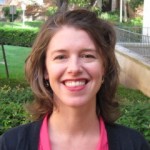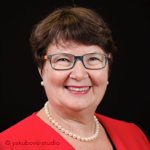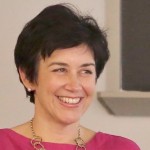Language-in-Use as a Focus for Intercultural Learning in the Foreign Language Classroom
Anthony J. Liddicoat, University of Warwick
Class of 1978 Pavilion Room 602
Intercultural language teaching and learning is not primarily about teaching the cultures associated to another language but rather about developing intercultural capabilities through processes of reflection on the contribution of languages and cultures to meaning making. The focus on the intercultural involves a focus on developing the capacity to explore practices of meaning making while engaged with language in use. For language learners, language-in-use represents a point of engagement with culturally contexted differences between the meaning making practices of their existing language(s) and the language they are studying that can reveal not only aspects of the meaning making practices of the target language but also their own assumptions about how meanings are created, communicated and interpreted. This presentation will look at how the culturally contexted nature of language-in-use can form a basis for understanding. In particular, it will examine how the use of inter-related processes of noticing, comparing, reflecting and interacting develop learners’ insights into meaning making practices. Through reflection on differences in the ways in which meanings are realized, language learners are able to develop generalizations about communicative practices that move beyond specific instances to become accounts of the cultured nature of language. This means that the learning of language can not only develop an awareness of the ways in which language is used but also has the potential to develop more sophisticated understandings of the relationship between language and culture in communication and to contribute to the language learners’ capacity to mediate between cultures.
 Anthony J. Liddicoat is Professor in the Centre for Applied Linguistics at the University of Warwick. His research interests include: language and intercultural issues in education, conversation analysis, and language policy and planning. In recent years his research has focused on issues relating to the teaching and learning of culture through language study. He is currently co-convenor of the AILA Research Network Intercultural mediation in language and culture teaching and learning/La médiation interculturelle en didactique des langues et des cultures and Executive Editor of Current Issues in Language Planning. He is a former President of the Applied Linguistics Association of Australia and the Australian Federation of Modern Language Teachers Associations and his publications include Language-in-education Policies: The Discursive Construction of Intercultural Relations (2013) Intercultural Language Teaching and Learning (2013 – with Angela Scarino) Linguistics and Intercultural Education in Foreign Language Teaching and Learning (2013 – with Fred Dervin) “Introduction to Conversation Analysis” (2011), “Languages in Australian Education: Problems, Prospects and Future Directions’ (2010 – with Angela Scarino) “Language Planning in Local Contexts” (2008 – with Richard Baldauf); “Discourse Genre and Rhetoric (2008); and “Language Planning and Literacy” (2006).
Anthony J. Liddicoat is Professor in the Centre for Applied Linguistics at the University of Warwick. His research interests include: language and intercultural issues in education, conversation analysis, and language policy and planning. In recent years his research has focused on issues relating to the teaching and learning of culture through language study. He is currently co-convenor of the AILA Research Network Intercultural mediation in language and culture teaching and learning/La médiation interculturelle en didactique des langues et des cultures and Executive Editor of Current Issues in Language Planning. He is a former President of the Applied Linguistics Association of Australia and the Australian Federation of Modern Language Teachers Associations and his publications include Language-in-education Policies: The Discursive Construction of Intercultural Relations (2013) Intercultural Language Teaching and Learning (2013 – with Angela Scarino) Linguistics and Intercultural Education in Foreign Language Teaching and Learning (2013 – with Fred Dervin) “Introduction to Conversation Analysis” (2011), “Languages in Australian Education: Problems, Prospects and Future Directions’ (2010 – with Angela Scarino) “Language Planning in Local Contexts” (2008 – with Richard Baldauf); “Discourse Genre and Rhetoric (2008); and “Language Planning and Literacy” (2006).
Staging, Supporting, and Evaluating Structured Reflection from Course to Curriculum
Cori Crane, University of Texas at Austin
Meyerson Conference Center Room 223
‘Structured reflection’ refers to a set of diverse tools that help learners to make sense of their learning by critically linking content/theoretical knowledge, personal experience, and previous assumptions. For foreign language instruction in particular, structured reflection can be a powerful instructional tool for fostering second language learners’ evolving knowledge of target cultures and themselves.
This workshop introduces participants to the concept of structured reflection and provides them with concrete tools for instructional use. In the workshop, participants will: (1) develop familiarity with different discussion strategies and reflective prompts that can be used to elicit critical reflection from students at different curricular levels within a foreign language program; (2) learn how to evaluate and provide feedback on structured reflection (esp. reflective writing); (3) begin to develop prompts for their own specific instructional context; and (4) consider how to stage structured reflection both within a course and across a larger curricular pathway.
 Cori Crane (PhD, Georgetown University) is Assistant Professor of Germanic Studies at the University of Texas at Austin, where she teaches German, applied linguistics, and foreign language pedagogy. She served as Lower-Division Coordinator for German at the University of Texas (2013-2016), and as German Language Program Director at the University of Illinois at Urbana-Champaign (2004-2012). Her research interests, closely aligned to her curriculum development and teacher mentoring work, include: second language writing, systemic functional linguistics, language teacher education, and reflective teaching and learning. Her publications have appeared in Die Unterrichtspraxis: Teaching German, L2 Journal, Profession, and AAUSC volumes.
Cori Crane (PhD, Georgetown University) is Assistant Professor of Germanic Studies at the University of Texas at Austin, where she teaches German, applied linguistics, and foreign language pedagogy. She served as Lower-Division Coordinator for German at the University of Texas (2013-2016), and as German Language Program Director at the University of Illinois at Urbana-Champaign (2004-2012). Her research interests, closely aligned to her curriculum development and teacher mentoring work, include: second language writing, systemic functional linguistics, language teacher education, and reflective teaching and learning. Her publications have appeared in Die Unterrichtspraxis: Teaching German, L2 Journal, Profession, and AAUSC volumes.
Intercultural Communication through Scaffolded Critical Thinking Activities
Christina Frei, University of Pennsylvania
Collaborative Classroom Room 113
Anchored within the newly published ACTFL Intercultural Communication Standards, this workshop will guide participants through the conceptualization and development of critical thinking activities within the three modes of communication. These activities encourage students to reflect, compare and analyze as they sharpen and work with critical thinking strategies for interpreting authentic materials, comparing cultural practices and formulating opinions about cultural products and perspectives. We start the workshop with a Think-Share-Pair activity followed by a brief overview of the newly published ACTFL Intercultural Communication Standards. You will work in groups and develop an intercultural communication activity that incorporates critical thinking strategies. We will conclude the workshop with a gallery walk sharing group projects.
 Christina Frei (Ph.D. University of California at Davis, 2002) is inaugural Executive Director of Language Instruction for the School of Arts & Sciences at the University of Pennsylvania. She chairs the Penn Language Center, home of many less commonly taught languages and trains the graduate teaching fellows in the Department of Germanic Languages and Literatures and across diverse departments. Her research interests include curricular design, collaborative teaching and learning and blended learning. She is co-authoring a textbook for beginning/intermediate German language and culture and regularly leads workshops in curricular design and teaching methodology nationally. She recently co-authored “Implication of the AP World Language Curriculum for University Language Programs,” AAUSC Vol. 17, 2016.
Christina Frei (Ph.D. University of California at Davis, 2002) is inaugural Executive Director of Language Instruction for the School of Arts & Sciences at the University of Pennsylvania. She chairs the Penn Language Center, home of many less commonly taught languages and trains the graduate teaching fellows in the Department of Germanic Languages and Literatures and across diverse departments. Her research interests include curricular design, collaborative teaching and learning and blended learning. She is co-authoring a textbook for beginning/intermediate German language and culture and regularly leads workshops in curricular design and teaching methodology nationally. She recently co-authored “Implication of the AP World Language Curriculum for University Language Programs,” AAUSC Vol. 17, 2016.
Core Practices in Intercultural Teaching
Erin Kearney, State University of New York at Buffalo
Class of 1955 Conference Room 241
Culture sits at the core of world language education, yet the specific instructional practices and routines teachers can employ to effectively create opportunities for (inter)cultural learning are little studied and rarely addressed in teacher education programs or professional development. In this workshop, participants will be engaged in understanding more clearly several “core” practices in intercultural teaching, based on classroom-based research that empirically grounds these instructional practices. Participants will first be acquainted with a frame for thinking about “core” practices in intercultural teaching. We will then analyze classroom video examples and finally explore how these practices inform our particular classroom contexts. Please bring a hard copy of a recent lesson plan focused on (inter)cultural learning and accompanying materials (e.g. texts, images) used for the lesson.
 Erin Kearney is Associate Professor of Foreign and Second Language Education at the State University of New York at Buffalo, where she works with novice language teachers and future applied linguists. Erin’s research seeks to analyze and transform discourse and interaction in language classrooms. This analysis provides strategies to expand learners’ ability to make meaning with language and thereby offers students opportunities to develop interculturality. Her work, ranging from preschool settings to K-12 schools and university-level classrooms, appears in the Modern Language Journal, Language Awareness, the Journal of Second Language Writing and a book published with Multilingual Matters. Erin is currently serving a three-year term on the Board of Directors of the American Council of the Teaching of Foreign Languages.
Erin Kearney is Associate Professor of Foreign and Second Language Education at the State University of New York at Buffalo, where she works with novice language teachers and future applied linguists. Erin’s research seeks to analyze and transform discourse and interaction in language classrooms. This analysis provides strategies to expand learners’ ability to make meaning with language and thereby offers students opportunities to develop interculturality. Her work, ranging from preschool settings to K-12 schools and university-level classrooms, appears in the Modern Language Journal, Language Awareness, the Journal of Second Language Writing and a book published with Multilingual Matters. Erin is currently serving a three-year term on the Board of Directors of the American Council of the Teaching of Foreign Languages.
Intercultural Magic: Unlocking the Potential of Museum Objects for Intercultural Teaching and Learning
Christelle Palpacuer-Lee, Rutgers University
Meyerson Conference Center Room 223
In this workshop, participants will be invited to explore and activate seeds of intercultural teaching practices through the discovery and use of museum objects. Participants will learn:
- How to approach and respond to museum objects as cultural products;
- How to engage and perform “intercultural operations” (Guilherme, 2002, pp. 219-221) using these museum objects; and
- How to include museum visits and design object-based intercultural curricula in their foreign language classroom.
Participants will discover object-based learning and teaching through interactive, hands-on and experiential activities using a Magic Box containing objects from the museum collections. Instructional materials extending object-based teaching and learning will be shared and analyzed for their intercultural potential. Participants will be able to use these materials directly in their respective foreign language classes, or as templates to suit their instructional needs. This workshop was developed in collaboration with the UPenn Museum of Archeology and Anthropology education staff.
 Christelle Palpacuer-Lee, Ed.D, is a researcher and language teacher educator at Rutgers Graduate School of Education (NJ). Her research and practice focus on the deployment of interculturality in teacher education. This focus led to the investigation, promotion and implementation of best practices in intercultural mediation, across contexts and proficiency-levels at the museum, in bilingual pre-schools, and community-based programs. Upcoming publications discuss the development of intercultural citizenship in service-learning programs.
Christelle Palpacuer-Lee, Ed.D, is a researcher and language teacher educator at Rutgers Graduate School of Education (NJ). Her research and practice focus on the deployment of interculturality in teacher education. This focus led to the investigation, promotion and implementation of best practices in intercultural mediation, across contexts and proficiency-levels at the museum, in bilingual pre-schools, and community-based programs. Upcoming publications discuss the development of intercultural citizenship in service-learning programs.
What’s so funny?: Using Humor to Develop Intercultural Competence
Anne Pomerantz, University of Pennsylvania
Collaborative Classroom Room 113
Language educators often view humor as too linguistically complex, semantically ambiguous, culturally nuanced, and emotionally charged to introduce in classroom settings. Yet, it is precisely the layered, unscripted, situated, and emotional character of humor that makes it a valuable point of departure for developing learners’ intercultural competence. In this workshop, we will examine how a focus on identifying, comprehending, producing, and appreciating humor can help learners to become not merely “faithful imitators” of target language practices (Gao, 2014), but active and reflexive makers and interpreters of meaning. Participants will consider an array of strategies for both integrating humor into existing classroom activities and designing new humor-centered pedagogical tasks. Particular emphasis will be placed on how humor can be used to foster key aspects of intercultural competence, including a deep understanding of how communication works and the ability to critically reflect on one’s role as a communicator (Liddicoat & Scarino, 2013).
 Anne Pomerantz is a Senior Lecturer at the University of Pennsylvania, Graduate School of Education, where she works closely with language educators and intercultural specialists. Her research focuses on the role of humor in classroom discourse and language pedagogy. She is the co-author (with Nancy Bell) of Humor in the Classroom: A Guide for Language Teachers and Educational Researchers.
Anne Pomerantz is a Senior Lecturer at the University of Pennsylvania, Graduate School of Education, where she works closely with language educators and intercultural specialists. Her research focuses on the role of humor in classroom discourse and language pedagogy. She is the co-author (with Nancy Bell) of Humor in the Classroom: A Guide for Language Teachers and Educational Researchers.
Citizen Sociolinguistics in the Language Classroom: What is it? Why do it?
Betsy Rymes, University of Pennsylvania
Class of 1955 Conference Room 241
Citizen Sociolinguistics is the study of the world of language by everyday people who use language (anyone!). In this workshop we will learn how language teachers and their students can draw on the Internet and daily news (internet circulated, usually) and learn about the social value of different ways of speaking from “Citizen Sociolinguists,” who speak with authority and a wealth of sociolinguistic knowledge. We will explore different ways that teachers and students can collaborate in citizen sociolinguistic study to gather and analyse data and develop critical awareness of language and communication patterns.
 Betsy Rymes is Professor and Chair of Educational Linguistics at the University of Pennsylvania’s Graduate School of Education. Her recent publications include the books Communicating beyond language: Everyday engagements with diversity (Routledge, 2014) and Classroom discourse analysis: A tool for critical reflection (2nd Edition, Routledge, 2015).
Betsy Rymes is Professor and Chair of Educational Linguistics at the University of Pennsylvania’s Graduate School of Education. Her recent publications include the books Communicating beyond language: Everyday engagements with diversity (Routledge, 2014) and Classroom discourse analysis: A tool for critical reflection (2nd Edition, Routledge, 2015).
Class of 1978 Pavilion Room 602
The symposium will close with a panel discussion that brings all workshop leaders together with the participants and offers an opportunity to engage in a formal discussion of the promises and challenges of taking an intercultural approach to language education.
